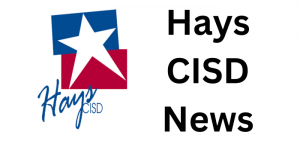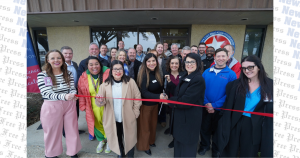By Bailey Buckingham
A $220,000 professional development service to help teachers instruct balanced literacy was approved by the Hays CISD school board.
But one school board trustee believes advanced training would help students beyond what Hays CISD is paying for.
The board approved the professional development service with Debbie Diller and Associates by a 5-1 vote at last week’s school board meeting. Board trustee Esperanza Orosco voted against the agreement.
Debbie Diller and Associates has been working with teachers in the district for three years now because of a federal grant, which focuses on instructing balanced literacy.
Due to low STAAR testing scores, Science Hall, Kyle Elementary and Hemphill Elementary are listed as Tier 3 schools.
This tier makes the district eligible for funding by Title 1 of the Texas Education Agency for the purpose of enlisting professional help in specific areas.
According to the TEA website, this fund provides supplemental funding to state and local education agencies. Title 1 funding pays for resources to assist schools with high concentrations of students from low-income families.
These resources improve education quality and help ensure all children in low-income contexts meet the state’s student performance standards.
Christina Courson, Hays CISD communications specialist, said there is no specific cap on the funds allocated to the district for these professional services. However, the funding varies from year to year. These funds cannot be used for anything other than professional development services.
Courson said some teachers struggled with balanced literacy, which is complex. Orosco said balanced literacy is an approach or framework that guides students to be “effective and proficient in reading and writing.”
For this reason, the district selected a national expert to provide the support Hays teachers need.
“The balanced literacy classrooms focus on different types of reading, reading aloud, shared reading, guided reading, reading conferences, and independent reading,” Orosco said. “The types of writing include shared writing, interactive writing, guided writing, writing conferences, and independent writing.”
Orosco, however, did not vote to approve Debbie Diller’s services because of comments and conversations she has had with teachers within the district.
She said experienced teachers who have implemented Debbie Diller strategies or shown success in students could benefit from other advanced training. She said the advanced training would help “especially with respect to technology and in accordance with our strategic plan and priority to develop 21st century leaders.”
Even with Orosco’s opposition, the board must approve a professional development service company to continue to receive the Title 1 grant.
Orosco said because the board approved the continuation of Debbie Diller’s services, it is important to move forward in support of the decision.
“I do want to make sure that we monitor our teachers’ satisfaction with the training,” Orosco said. “How bilingual teachers are included and have access to differentiated training, and how we realize student outcomes in the area of reading and writing.”
Courson said the district implements its own plans to monitor the progress of the teachers’ and the implementation of what they’ve learned from Debbie Diller.
“There are district-level coordinators who work with campuses to monitor and support implementation,” Courson said. “On the campus level, principals conduct walk-through observations to ensure fidelity to the model. Additionally, each campus has an identified instructional coach to provide job-embedded support for our teachers.”









